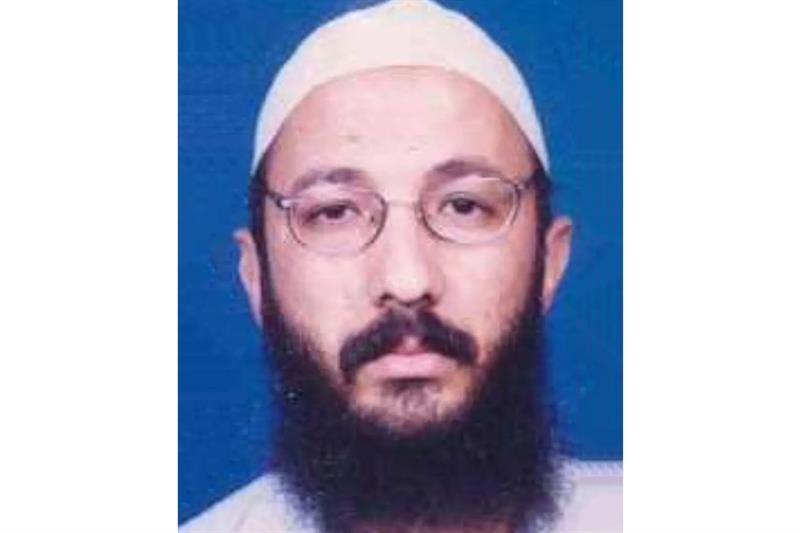
Al-Qaeda-Iran links are not new
Al-Qaeda-Iran links are not new, but the US accusing Iran of hosting an Al-Qaeda leader may be another bargaining chip in the new nuclear deal, reports Ahmed Mustafa
Though the terrorist group Al-Qaeda has not officially acknowledged its leadership’s succession, the US is accusing Iran of hosting the new group leader Seif Al-Adl.
Neither Al-Qaeda, nor the Taliban government in Afghanistan has confirmed the killing of the group leader Ayman Al-Zawahiri in a US missile strike on Kabul last year. But it is widely believed that the Egyptian militant has been appointed the third leader of the group, according to a UN report, succeeding Al-Zawahiri, who in turn succeeded the group founder, the Saudi militant Osama bin Laden. The US announced it assassinated Bin Laden in an operation in Pakistan in 2011.
There has been a $10 million bounty on Al-Adl’s head since he was indicted in the 1998 attack on American embassies in Tanzania and Kenya, which killed 224 and wounded more than 5,000. The US State Department says that after that attack in Africa, Al-Adl moved to Iran where he lived under protection of the Islamic Revolutionary Guard Corps (IRGC) south of the country.
According to the State Department website, he and other Al-Qaeda leaders were placed under house arrest in southern Iran in 2003 and later released with four other Al-Qaeda leaders in exchange for an Iranian diplomat kidnapped in Yemen.
Born in Menoufiya, Egypt in 1960, Seif Al-Adl was in the Egyptian army’s Special Forces till he reached the rank of colonel but was then tried for affiliation with the Jihad organisation in the late 1980s. On being discharged he joined Al-Qaeda in Afghanistan. There is some confusion about his identity when it comes to his real name. According to the FBI the former colonel in question is Mohamed Salaheddin Zeidan, but the Egyptian authorities say that Zeidan was never in the army but an economy graduate who joined Al-Qaeda in the early 1990s, while Mohamed Ibrahim Mekkawi was an army officer and member of Jihad. What makes the Egyptian version more plausible is that Seif Al-Adl’s earlier nom de guerre was Ibrahim Al-Madani (Ibrahim the Civilian).
Iranian Foreign Minister Hussein Amir Abdollahian denied the American allegation of hosting the new Al-Qaeda leader, accusing Washington of publishing misinformation and describing the suggested link to his country as “laughable”. But the Western media, along with the Israeli press, have taken up the American accusation and suggested it makes the revival of the nuclear deal between Tehran and world power more unlikely.
The accusation coincided with the meeting between Americans and the Gulf Cooperation Council (GCC) members in the Working Group on Counterterrorism in Riyadh, however, which focused on threats to the region, mainly from Iran. The US and European countries had recently stepped up their rhetoric against Iran’s links to Russia in the Ukraine war. Though the Israelis see this as an achievement of Prime Minister Benjamin Netanyahu’s anti-Iran crusade, some in the region still think it is just another move in the game of pressure on Iran to force its acceptance of American provisions for rejoining the nuclear deal.
Saudi commentator Abdul-Aziz Alkhames sees nothing new in the American accusation concerning Iran-Al-Qaeda links. “Iran has been hosting Al-Qaeda figures since 2001. After the war on Afghanistan, many Al-Qaeda leaders took refuge in Iran, including Seif Al-Adel. So the information is not new, even if the accusation surfaces now after the suggested leadership succession of the terrorist group,” Alkhames told Al-Ahram Weekly.
He still believes that “it is a game of pressure to get Iran to the negotiating table and force it to accept the provisions for revival of the nuclear deal. I still think, as long as the Democrats are in the White House, there will be a deal with Iran. It is essentially just political manoeuvring. It may also be in preparation for other options if the Iranians proceeded with further developments to their nuclear programme. It is hard to see the Iranians going that far and risking backlash. They are under huge pressure already. This can be detected from the anger of the Lebanese Hizbullah leader in his last speech, which reflects the pressure on his financiers in Tehran. Look also to Iraq, where the government in Baghdad is moving away from the Iranian sphere of influence.”
The Israelis have been trying hard to take a stand against Iran as a catalyst for normalising relations with Saudi Arabia. They are keen to draft American support to facilitate that track. But some analysts in the region note that the Americans are not necessarily fully in line with Netanyahu’s approach. They also acknowledge that the pressure on Iran is growing both internally and externally. Domestic unrest in the country is not fully subdued, and the population is growing angrier due to escalating economic hardships while Tehran’s support for Moscow in the Ukraine war, especially providing Russia with attack drones, is bringing about more external pressure.
Source: ahram





